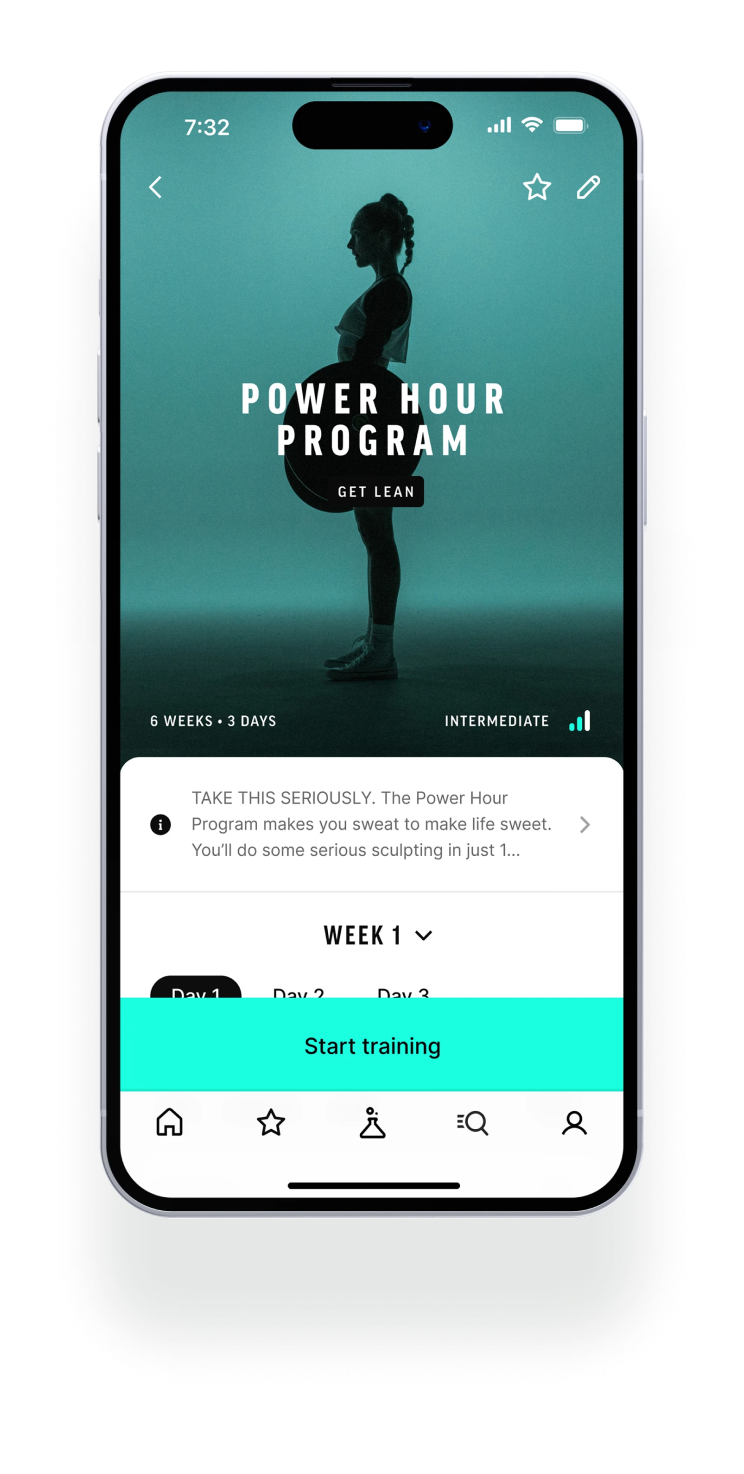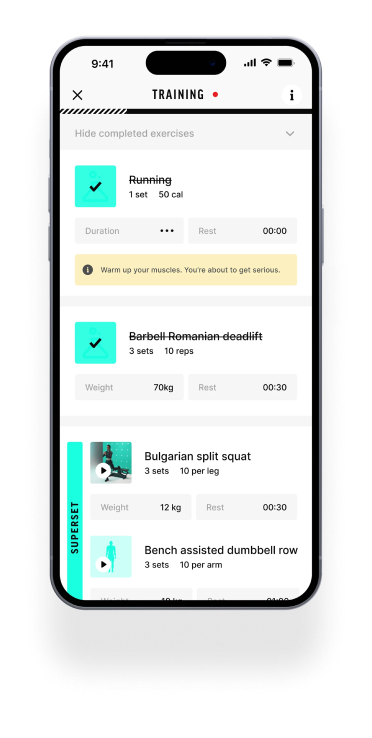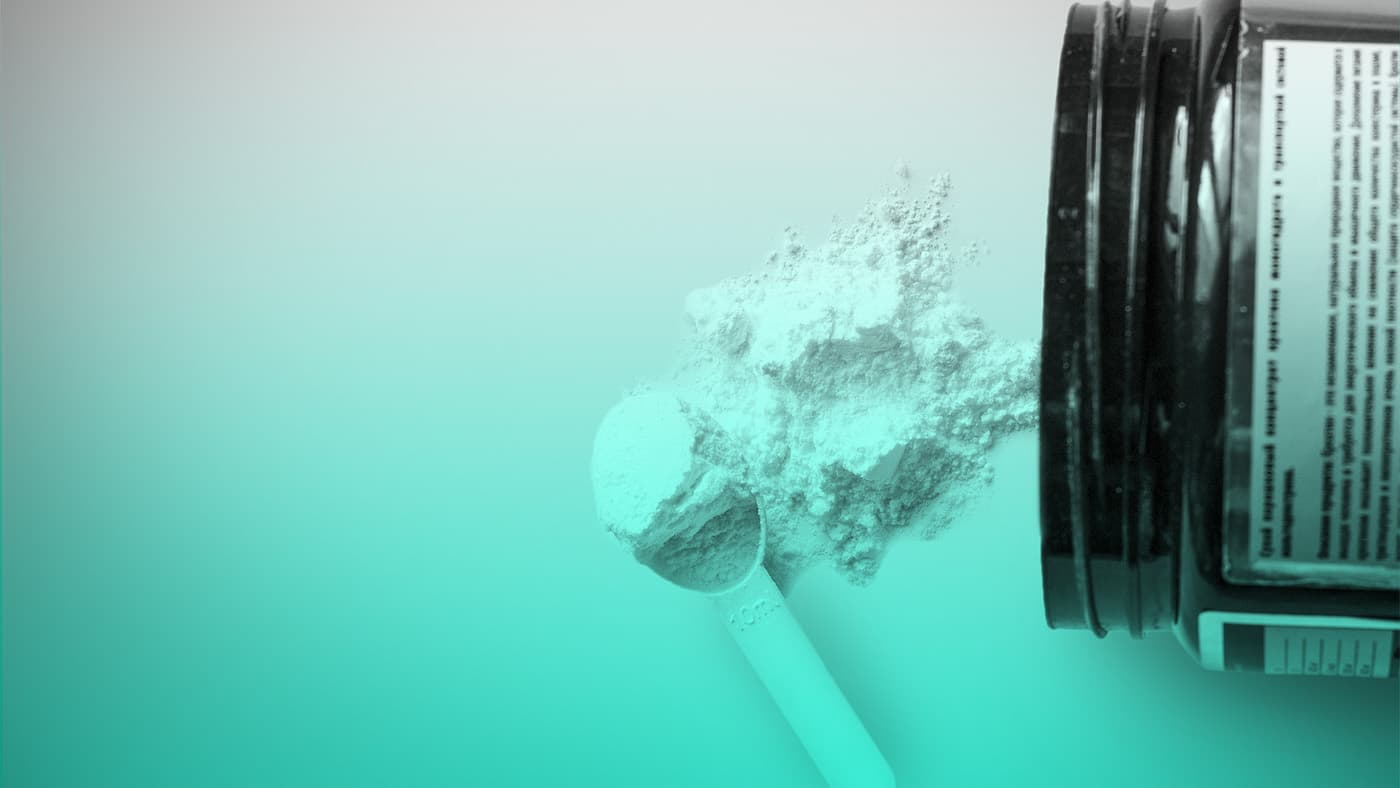Why creatine probably doesn't work for your brain
Creatine is increasingly being promoted as a "brainpower supplement" for better memory and sharper focus. Influencers and supplement companies promise that your brain will work faster and more efficiently after a creatine regimen. However, recent scientific studies tell a different story. For healthy people who get enough sleep and eat well, creatine most likely has no effect on cognitive performance. Your brain is already almost full of creatine and absorbs extra creatine much more difficultly than your muscles. Do you still want to know when creatine might be useful for your brain? Then read this article.
What is creatine and how does it work?
Creatine is a substance that naturally occurs in your body and helps in energy production. About 95% of all creatine is found in your muscles, where it provides rapid energy supply during intense activities like sprinting, weightlifting, or other explosive movements.
Your body produces creatine in the liver, kidneys, and pancreas. Additionally, you get it from meat and fish. Vegetarians often have lower creatine levels in their muscles due to this reason.
For muscle building and strength, creatine is the most researched supplement in the world. Dozens of studies prove that taking 3-5 grams of creatine per day can increase your strength by 5-15% and slightly accelerate muscle growth.
How does creatine work in your brain?
Your brain is highly energy-demanding, using about 20% of all the energy your body consumes, despite only accounting for 2% of your body weight. Just like your muscles, your brain needs energy to function optimally.
Here's where it gets interesting: your brain also requires creatine for energy supply. Approximately 5% of all creatine in your body is located in your brain. During mentally demanding tasks, the amount of creatine in your brain decreases, similar to how it happens in your muscles during intense training.
This sounds promising for supplementation. If extra creatine helps your muscles, why not your brain too?
The issue lies in absorption. Your brain is much more selective than your muscles in what it allows through the blood-brain barrier. While your muscle creatine levels can increase by 20-40% through supplementation, brain creatine levels only rise by a few percentages at most. For many people, this increase is too small to make a noticeable difference.
Studies (in this article): Does creatine really work for your brain?
Study 1: No effect in healthy young adults
A recent study from 2023 tested various doses of creatine on 30 healthy young adults. One group received 10 grams per day, another group 20 grams per day, and the control group received a placebo. After 6 weeks, their cognitive performances were evaluated.
The results were clear: no improvement in memory, concentration, processing speed, or attention was observed. This applied to both doses. Even 20 grams per day - four times the recommended muscle dose - had no effect.
Study 2: Overview of all available research
A comprehensive review from 2021 examined all available studies on creatine and brain function. The conclusions were nuanced:
In healthy, rested individuals: Usually no effect
Under stress or exhaustion: Possible minor benefits
In certain groups: Limited evidence for benefits
The researchers emphasized that the optimal dose for the brain is still unknown and likely much higher than for muscles.
Why does it often not work?
There are three main reasons why creatine often does not work for your brain:
Your brain is already saturated: Healthy brains usually have sufficient creatine. Adding more becomes pointless.
Poor absorption: The blood-brain barrier allows little extra creatine through. While your muscles can increase their creatine stores by 30%, your brain can only do so by a maximum of 5-10%.
No deficiency, no effect: If you do not have a creatine deficiency
Who can benefit from creatine?
Although creatine may not work for most healthy individuals, there are exceptions:
1. Vegetarians and vegans
Multiple studies show that vegetarians respond better to creatine supplementation for cognitive tasks. Interestingly, vegetarians do not necessarily have lower brain creatine levels than fish eaters. The reason for this difference is still unclear.
One study demonstrated that after 5 days of creatine intake (20 grams per day), vegetarians performed better on memory and reasoning tasks than fish eaters who received the same supplement.
2. People under acute stress
Creatine seems to be particularly helpful when your brain is under pressure:
Sleep deprivation: After 24-36 hours without sleep, creatine can help maintain concentration and reaction time.
Oxygen deprivation: At high altitudes or other low-oxygen situations, creatine can limit cognitive decline.
Intense mental workload: During prolonged, mentally exhausting tasks, creatine may help combat fatigue.
3. Concussion and brain injury
This is where creatine becomes truly promising. After a concussion:
The amount of creatine in your brain significantly decreases
The energy system of brain cells becomes disrupted
Extra creatine can aid in recovery
Studies on children with mild concussions showed improvements in:
Cognitive performance
Communication skills
Reduced headaches
Less fatigue
Improved behavior and mood
It's important to note that these are small studies and the effect remains limited.
4. Elderly individuals (potentially)
Results in the elderly are conflicting. One study showed improved cognitive performance, while another found no effect. The issue: neither study actually measured whether brain creatine increased due to supplementation.
Possibly, only elderly individuals with low baseline levels of brain creatine respond positively to supplementation.
Dosage and practical tips
If you still want to try creatine for your brain despite the limited evidence, consider the following:
Dosage
The optimal dose for brain function is unknown. Studies (on muscle building and strength) usually use:
Loading phase: 20 grams per day for 5-7 days
Maintenance phase: 5 grams per day
For the brain, a higher dose is likely needed than for muscles. Some researchers suggest 10-20 grams per day for an extended period.
Timing
Creatine takes several weeks of regular use to work. Do not expect immediate effects after a single dose. It takes time to build up the creatine stores in your brain.
Form of creatine
Creatine monohydrate remains the gold standard. More expensive forms like creatine ethyl ester or buffered creatine are not proven to be better for brain function.
Cost-benefit analysis
Expect to spend €30-50 per month for an effective dose. Ask yourself: is the small chance of limited improvement worth that money? For most people, the answer is no.
Alternatives that work
Instead of investing in creatine, you are better off investing in proven methods for better brain function:
Sleep
Adequate sleep (7-9 hours per night) has a much greater impact on cognitive performance than any supplement. Sleep deprivation significantly reduces your concentration, memory, and decision-making abilities.
Exercise
Regular physical activity increases the production of BDNF (brain-derived neurotrophic factor), a protein that stimulates brain growth and repair. Even 30 minutes of walking per day can help.
Nutrition
A varied diet rich in omega-3 fatty acids, antioxidants, and B vitamins supports brain function better than isolated supplements.
Mental training
Puzzles, reading, learning new skills - all of these keep your brain sharp and plastic. The "use it or lose it" rule applies especially to your brain.
Creatine for brain aging: hype or hope?
Many supplement companies claim that creatine protects your brain from aging and dementia. The reality is more nuanced.
There is evidence that people with neurological conditions like Parkinson's or Huntington's disease may benefit from creatine supplementation. However, there is little evidence for healthy aging.
One study on healthy elderly individuals (60-80 years) found no effect of 24 weeks of creatine on cognitive performance. Other studies are either too small or too short to draw conclusions.
The issue: even with aging, it is unclear whether creatine supplementation increases brain creatine. Without that increase, an effect is unlikely.
The future: new insights and alternatives
Researchers are working on better ways to increase brain creatine:
Guanidinoacetate (GAA)
This is a precursor of creatine that may pass through the blood-brain barrier more effectively. Early studies suggest that GAA is more effective than creatine in increasing brain creatine.
Combination therapies
Some researchers are testing creatine in combination with other substances that may improve brain uptake.
Personalized dosing
Possibly, only individuals with genetically lower creatine production respond well to supplementation. Future tests may predict this.
Conclusion: realistic expectations
Creatine for brain function is not a miracle drug. For the vast majority of healthy individuals, it is a waste of money. Your brain usually has enough creatine, and adding more barely works.
When can it be useful?
You are a vegetarian or vegan
You have had a concussion
You are under extreme stress (sleep deprivation, high altitude)
You belong to a specific risk group
But even then, remember: the effects are small and not guaranteed. The €40 per month you spend on creatine is better invested in:
A good mattress for better sleep
Gym membership for more exercise
Healthy diet with sufficient fish and vegetables
The fundamental issue remains: your brain is already nearly saturated with creatine and allows little extra in. Until researchers find a way to bypass that barrier, creatine remains an expensive gamble with minimal chances of success for most people.
The sober truth? Fix the bad habits first before reaching for supplements. Your brain doesn't need pills - it needs sleep, exercise, and challenges.
References
Moriarty, T., et al. (2023). Dose–response of creatine supplementation on cognitive function in healthy young adults. Brain Sciences, 13(9), 1276.
Roschel, H., et al. (2021). Creatine supplementation and brain health. Nutrients, 13(2), 586.
START TRAINING SERIOUSLY
Discover new training methods based on scientific knowledge, improve your form and technique and seriously track your fitness goals.




